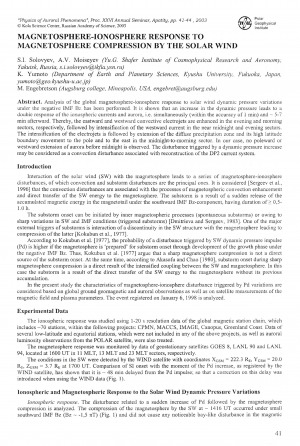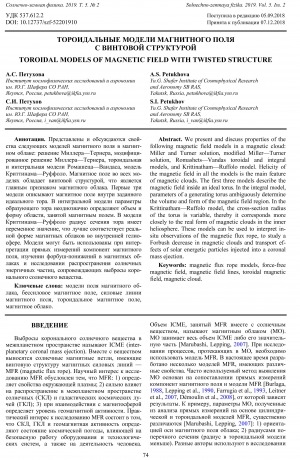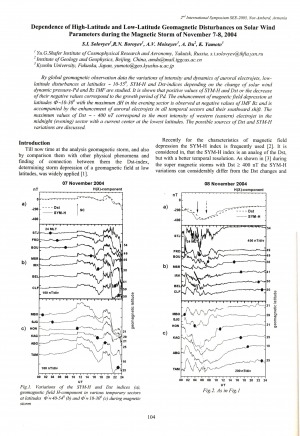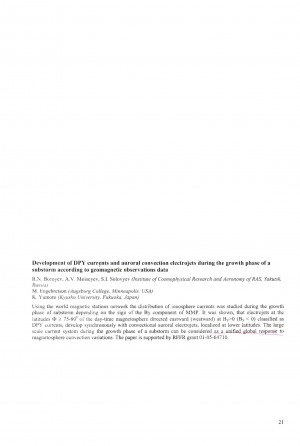QR-код документа
Как сканировать QR-код?
Для пользователей Android:- Скачайте приложение для сканирования QR-кодов (Google Play)
- Откройте скачанное приложение;
- Наведите камеру на QR-код.
- Откройте приложение "Камера";
- Наведите камеру на QR-код;
- Нажмите на всплывающее уведомление.
Другие выпуски
Номера года:
Вам будет интересно
Dynamics of field-aligned currents during substorms Magnetosphere-ionosphere response to magnetosphere compression by the solar wind Effect of Bγ IMF in substorm current wedge formation Characteristics of substorms stimulated by variations of the dynamic solar wind pressure and magnetospheric convection electric field Asymmetry in substorm development in the earth's northern and southern hemispheres Северо-южная асимметрия геомагнитной активности и электрическое поле солнечного ветра Тороидальные модели магнитного поля с винтовой структурой Toroidal models of magnetic field with twisted structure Dependence of High-Latitude and Low-Latitude Geomagnetic Disturbances on Solar Wind Parameters during the Magnetic Storm of November 7-8, 2004 Dynamics of the Field-Aligned Current Systems Observed during The Super-Storm on Nov. 20, 2003 Development of DPY currents and auroral convection electrojets during the growth phase of a substorm accocding to geomagnetic observations data











